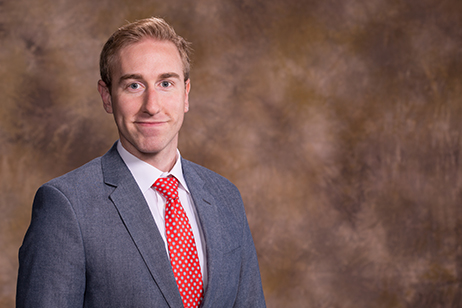FAYETTEVILLE, Ark. – In a new study of five-year spreads on credit default swap contracts for more than 2,000 U.S. and international firms, a finance researcher at the University of Arkansas found that strong property rights and transparency are key in securing a stable financial future for companies amid a widespread rise in sovereign risk around the globe.
Stace Sirmans, assistant professor of finance in the Sam M. Walton College of Business, and University of Florida colleagues Jongsub Lee and Andy Naranjo analyzed five-year spreads on credit default swaps for 2,364 companies in 54 countries from 2004 to 2011. They found that firms in countries with little economic freedom and corrupt or unstable governments can lower their default risk by holding assets in countries with stronger property rights and by cross-listing stock on exchanges with stricter disclosure requirements.
Similar to an insurance contract, a credit default swap is a financial agreement in which the seller of a bond will in some way compensate the buyer in the event of loan default by the debtor. Essentially it is an insurance contract against default on a bond. The premium paid for that contract is called the spread. Most contracts mature over a period of five years.
“Many nations today continue to run large budgetary deficits while experiencing slow economic growth, so the risk of sovereign default will likely continue to rise, and governments will increasingly need to extract wealth from the private sector to stay solvent,” Sirmans said. “To a degree, companies can shield themselves by accommodating creditors’ desire for safety and transparency. By holding assets in countries with strong property rights and adhering to strict disclosure rules, a company can significantly reduce its perceived credit risk and, in some cases, borrow on even better terms than its own government."
Such firms reduced their credit default swap spreads by 40 basis points, or 0.4 percent. Basis points are the standard measure of value of credits and investments. One basis point is equal to .01 percent of the debt amount. The average spread for the researchers’ sample was 1.95 percent, or 195 basis points, so, on average, a 0.4 percent reduction lowered the average credit default spread by about 20 percent.
Aside from to the global credit crisis, however, sovereign governments, usually those suffering from large budget deficits or slow economic growth, have always had the power to institute measures that weaken the private sector. These usually involve increasing control on foreign exchanges, trade and capital and raising taxes or other corporate infringements. All of these actions increase the potential for loan default.
Because of the global credit crisis, credit default swap spreads have risen dramatically, from an average of 30 basis points in 2004 – or 0.3 percent of the debt amount – to as high as 250 basis points, or 2.5 percent, in 2008. Since 2008, spreads have remained above 100 basis points on average.
“In the aftermath of the recent global credit risk crisis, there has been increasing concern about the transferring of sovereign, credit-default risks to private sector firms,” Sirmans said. “Some governments, such as Argentina, have turned toward interventionist economic policies and imposed increasingly invasive corporate restrictive measures that have limited the ability of private firms to service their external debt obligations.”
The researchers also showed that only geographic location of firms’ assets mattered. Neither aggregate amount of a firm’s foreign assets or sales explained the corporate credit default swap spreads.
The researchers study, “Exodus from Sovereign Risk,” has been accepted for publication in the Journal of Finance.
About the University of Arkansas: The University of Arkansas provides an internationally competitive education for undergraduate and graduate students in more than 200 academic programs. The university contributes new knowledge, economic development, basic and applied research, and creative activity while also providing service to academic and professional disciplines. The Carnegie Foundation classifies the University of Arkansas among only 2 percent of universities in America that have the highest level of research activity. U.S. News & World Report ranks the University of Arkansas among its top American public research universities. Founded in 1871, the University of Arkansas comprises 10 colleges and schools and maintains a low student-to-faculty ratio that promotes personal attention and close mentoring.
Contacts
Stace Sirmans, assistant professor, Department of Finance
Sam M. Walton College of Business
850-459-2039, cssirman@uark.edu
Matt McGowan, science and research communications officer
University Relations
479-575-4246, dmcgowa@uark.edu
